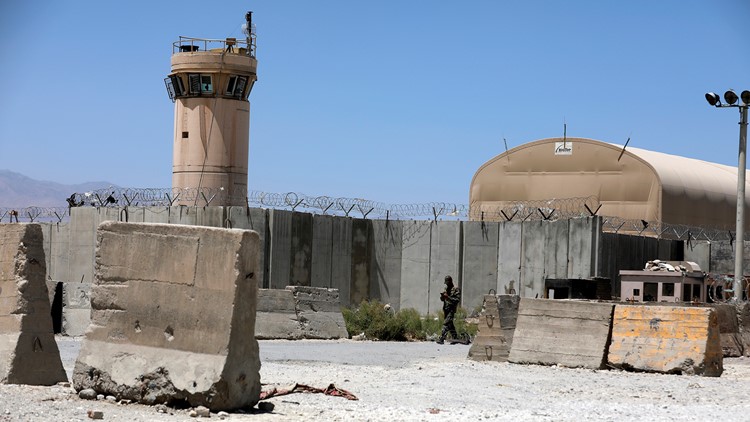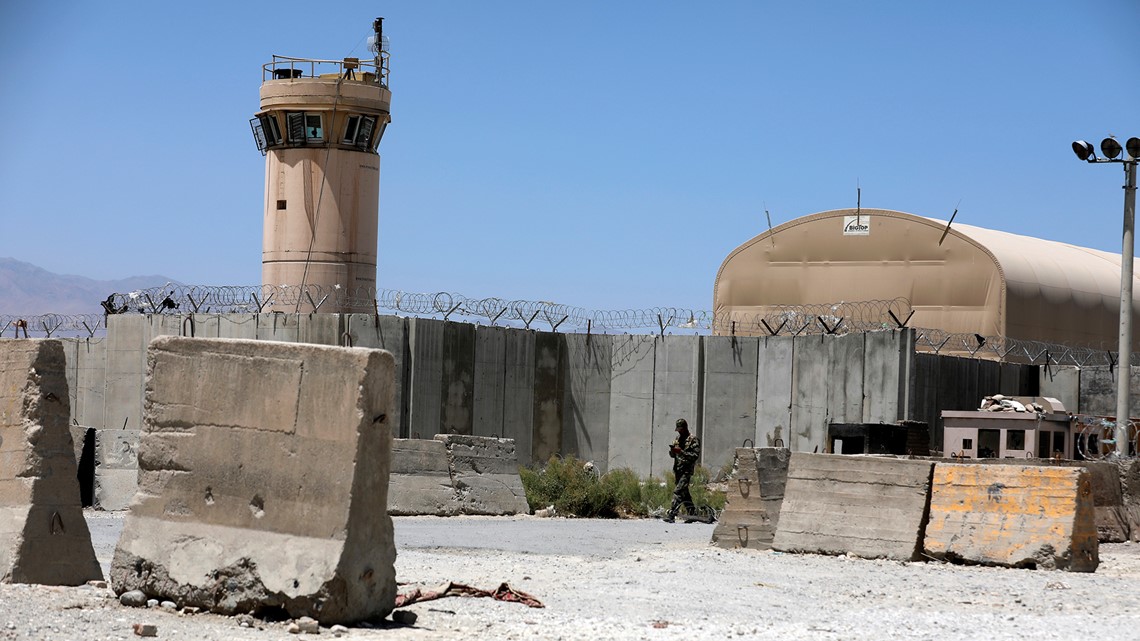
The withdrawal is the clearest indication that the last of the 2,500-3,500 U.S. troops have left Afghanistan or are nearing a departure.
KABUL, Afghanistan — After nearly 20 years, the U.S. military left Bagram Airfield, the epicenter of its war to oust the Taliban and hunt down the al Qaida perpetrators of the 9/11 terrorist attacks on America, two U.S. officials said Friday.
The airfield was handed over to the Afghan National Security and Defense Force in its entirety, they said on condition they not be identified because they were not authorized to release it to the media.
One of the officials also said the U.S. top commander in Afghanistan, Gen. Austin S. Miller, “still retains all the capabilities and authorities to protect the forces.”
The withdrawal is the clearest indication that the last of the 2,500-3,500 U.S. troops have left Afghanistan or are nearing a departure, months ahead of President Joe Biden’s promise that they would be gone by Sept. 11.
It was clear soon after the mid-April announcement that the U.S. was ending its “forever war” that the departure of U.S. soldiers and their estimated 7,000 NATO allies would be nearer to July 4, when America celebrates its Independence Day.
Most NATO soldiers have already quietly exited as of this week.
The U.S. has refused to say when the last U.S. soldier would leave Afghanistan, citing security concerns, but also the protection of Kabul’s Hamid Karzai International Airport is still being negotiated. Turkish and U.S. soldiers currently are protecting the airport. That protection is currently covered under the Resolute Support Mission, which is the military mission currently closing.
Until a new agreement for the airport’s protection is negotiated between Turkey and the Afghan government, and possibly the United States, the Resolute Support mission would appear to continue.
The U.S. will also have about 6,500 troops in Afghanistan to protect its sprawling embassy in the capital.
At its peak, Bagram Airfield saw more than 100,000 U.S. troops pass through its sprawling compound barely an hour’s drive north of the Afghan capital Kabul.
Associated Press writer Lolita Baldor in Washington contributed to this report.













































